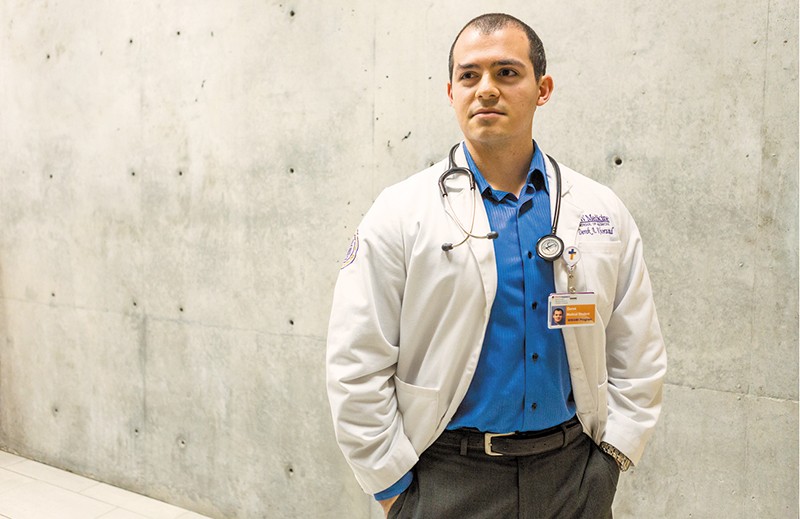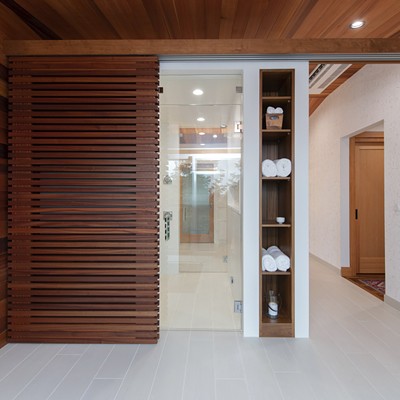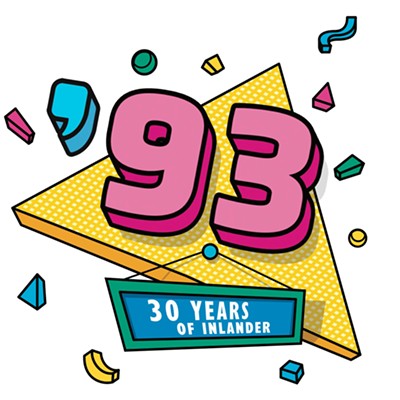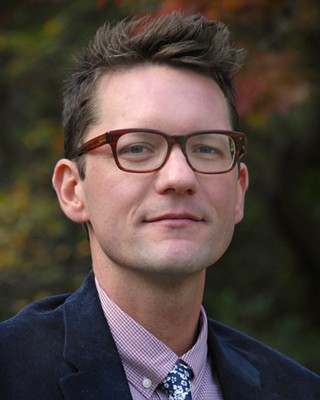The bright young students at the University of Washington’s medical school always spend their second year of studies in Seattle. The hubbub and opportunity offered in the Pacific Northwest’s largest city is exciting.
Then their third year begins and some end up learning in Spokane’s hospitals and clinics. Some of them consider this a spell of bad luck.
“That’s not the case for me. So don’t worry,” says Derek Khorsand, 24, with a laugh. He came here last July with his wife Kate, both in their third year of studies at UW’s School of Medicine. “We wanted to check out Spokane’s huge medical community and see if this is a place we could live in the future, where we could practice.”
As the Inland Northwest grows, so does its prominence as a regional medical hub and its need for more health professionals. It’s also why, beginning next year, people like Khorsand may become scarce. That is, rather than transitory students spending just one or two years here, medical students will begin spending all four years in Spokane, thanks to the completion of the Riverpoint Campus that will house a complete four-year program in the University District.
Of course, another reason Khorsand and his wife chose Spokane is so they could spend the year together. Otherwise, they would’ve been moved around — from Juneau to Billings to Pendleton — every six weeks.
Which might be an adventure “if you were single,” says Derek. “If you like to see each other, it’s suboptimal.”
Spoken like a true doctor.
Medical school can be as hard as you imagine, Khorsand says. Some days, he rises at 3:30 in the morning and doesn’t get home from the hospital till 7 that evening. And that’s when the studying begins because, yes, there are still tests.
But mostly it’s manageable.
“If it’s important to you, you find time,” he says. “I have friends who do full triathlons.”
For Khorsand, living a life outside of his studies is important. He and his wife sneak in a date night on a regular basis.
With the workload and stress, Khorsand couldn’t be blamed for allowing his body to slide into disuse. But he still hits the gym. “You see reasons why you should live to the fullest,” he says of his work at the hospital.
Khorsand decided he was going into medicine in middle school. His mom’s an operating room nurse. His older sister’s a first-year anesthesia student at UW.
“My dad’s a mechanical engineer,” he says. “All of his siblings are in medicine, so he’s always been the black sheep in the family.”
He and his wife met in honors calculus on Khorsand’s first day of college at the University of Washington, where he would eventually get his undergrad degree in biochemistry. The two got engaged two months after beginning medical school and were married last March.
It’s been a life, for the most part, of reasoned, dispassionate decision-making. Khorsand knows exactly what he wants to do. Sort of.
“That’s a tough question,” he says when asked what type of doctor he wants to be. “Honestly, I’ve loved everything that I’ve done, so it’s going to be a tough choice.”
He’s been through his intensive-care unit, radiology, family medicine, internal medicine and obstetrics rotations. There’s still surgery, pediatrics and psychiatry left. How about a top three? “Hmmm. Top three. Let’s see here,” he says. “I’m going to have to say undecided.”
There is one moment during his time in Spokane, however, that has stuck with him like no other.
“Getting to deliver a baby,” he says. “[The doctor and I] had done a few together. He was talking me through it, quizzed me beforehand. … I caught the baby. It was totally awesome.”
It’s a moment that shows how close these students are to actually being doctors — even if the “real” doctor was right over his shoulder. He says it’s an opportunity he might not have gotten in Seattle, where students are competing with residents and fellows to have the opportunity to deliver a baby.
“[There] you’re the low man on the totem pole,” he says. “You won’t really get as intensive experiences with exposure to the depth and breadth of medicine that you would out here, which I think is a huge strength of the program.”
Khorsand still has a few years to go before practicing on his own, and he has no idea where he and his wife will land. But you never know. Maybe he’ll treat the baby he delivered as she grows from child to adult.





















